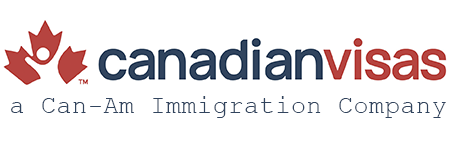
Jun 23, 2017 | Blog, Canadian Employers, In the News, Processing Times, Student Visas, Temporary Foreign Workers, Tourist Visas, Work Permits, Working In Canada
Immigration, Refugees, and Citizenship Canada (IRCC) has announced the launch of the new Global Talent Stream, a part of the Canadian government’s new Global Skills Strategy. As a result, certain high-skilled workers may now be able to obtain their temporary work permits in 2 weeks. This includes an open work permit for a spouse and a study permit for dependent children of the primary applicant.
The Global Talent Stream is comprised of two categories:
- Category A is available for employers who have been referred by an Employment and Social Development Canada (ESDC) Designated Partner
- Category B allows certain employers to hire foreign workers in one of the designated high-skill occupations.
Employers are required to develop a Labour Market Benefits Plan, which highlights their commitment to the Canadian labour market.
Our team of immigration consultants can help you determine your eligibility and prepare your work permit application. To find out if you qualify for expedited processing of your work permit application, contact us to discuss your options.
If you are an employer looking to hire foreign workers to fill labour shortages, click here to find out more.

May 17, 2017 | Blog, Citizenship, Family Immigration, Featured, Immigrate to Canada, Immigration, In the News, Permanent Residency, Spousal Sponsorship, Student Visas, Temporary Foreign Workers, Tourist Visas, Work Permits, Working In Canada
According to a U.S. News study, Canada was ranked the second best country in the world in 2017. U.S. News partnered with Y&R’s BAV and Wharton to rank 80 countries, based on several attributes, divided into nine (9) sub-rankings:
- Adventure (friendly, fun, pleasant climate, scenic, and sexy);
- Citizenship (cares about human rights, cares about the environment, gender equality, progressive, religious freedom, respects property rights, trustworthy and well-distributed political power);
- Cultural Influence (culturally significant in terms of entertainment, fashionable, happy, has an influential culture, modern, prestigious and trendy);
- Entrepreneurship (connected to the rest of the world, educated population, entrepreneurial, innovative, provides easy access to capital, skilled labor force, technological expertise, transparent business practices, well-developed infrastructure and well-developed legal framework):
- Heritage (culturally accessible, has a rich history, has good food and many cultural attractions);
- Movers (different, distinctive, dynamic and unique):
- Open for Business (bureaucratic, cheap manufacturing costs, corrupt, favorable tax environment and transparent government practices);
- Power (a leader, economically influential, politically influential, strong international alliances and strong military alliances); and
- Quality of Life (affordable, a good job market, economically stable, family friendly, income equality, politically stable, safe, well-developed public education system and well-developed public health system).
Coming in as the second best country overall after Switzerland, Canada was also ranked #1 in the Quality of Life sub-category and 4th in the Citizenship sub-category. With a great public health care system and strong education system, as well as being a safe and family-friendly country; Canadians can boast a high quality of life. Canada is also known for being welcoming to immigrants and accepting of the diverse cultures of all their citizens. Canada is a land of opportunities for many foreign nationals as well as a safe haven for refugees. It might even be said that the American Dream is currently alive in Canada. In fact, the United States ranked 7th overall behind the United Kingdom, Germany, Japan, and Sweden (ranked 3rd, 4th, 5th, and 6th, respectively). Canada also ranked second best country overall in the same survey done in 2016 (behind Germany) as well as #1 in Quality of Life and #2 in Citizenship.
In addition to the above-mentioned categories, Canada also ranked number one for Best Countries for Education, well above the United States (which ranked 7th). Canada secured this #1 spot because of its highly developed public education system and quality universities. All in all we can say that Canada is a wonderful place to live. No matter where in the world you come from, what your beliefs are, and what your future goals look like, Canada and its occupants welcome you with open arms.
Are you interested in exploring this beautiful country? There are so many opportunities for individuals and families looking to study, work, and live in Canada. Our team of experienced immigration consultants is here to help you achieve your dream. Maybe you want to come for a visit to see the sights or to visit family. Perhaps you are looking for temporary status that allows you to work and /or study in Canada. Even if you are seeking a more long-term status, we can help. Canada places much value on the reunification of families. So if you have family members living in Canada, we can help with Family Sponsorship applications, including Spousal Sponsorship. From visitor visas to permanent residence to citizenship, our team can help you choose the best program to fit your needs. To get started, take our free online assessment or contact us today. We would gladly answer all of your questions and discuss your options for Canada immigration.

Dec 14, 2016 | In the News, Work Permits, Working In Canada
On December 13, 2016, the Government of Canada eliminated the “four-in, four-out” rule. In April, 2011, Immigration Refugees and Citizenship Canada (IRCC) implemented a rule that limited some temporary foreign workers to a maximum of four (4) years. Effective immediately, temporary foreign workers are no longer subjected to the four-year cumulative duration. Up until December 13, 2016, some temporary foreign workers were unable to extend their work permits beyond four years, and were required to leave Canada. These workers were required to spend at least four (4) years outside Canada before being eligible to work in Canada.
The Temporary Foreign Worker Program (TFW) was created to help Canada meet the employment demands and respond to labour shortages. Canadian employers who are unable to fill positions with Canadian citizens or permanent residents may request authorization (Labour Market Impact Assessment) to hire foreign workers.
The changes are welcomed by many, especially those foreign workers in Canada and their employers. This change is based on a report from the Standing Committee on Human Resources, Skills and Social Development Canada, and the status of Persons with Disabilities.
Active Applications
Foreign workers currently in Canada on a work permit, whether it was issued prior to December 13, 2016 or after this date are no longer limited to 4 years maximum. Those applicants who are within a restoration period may now reapply for a work permit. As always, foreign nationals who wish to apply for a work permit must still satisfy the requirements of Paragraph 183(1)(a) of the Immigration and Refugee Protection Regulations (IRPR).
Applicant in Canada
If an applicant in Canada wishes to remain in Canada on a work permit and the period of time that they have been working in Canada meets or exceeds four (4) years, they may apply to extend their stay in Canada as a Worker, provided that they meet the eligibility requirements.
Jul 21, 2014 | Working In Canada
Following Friday’s announcement by minister of employment Jason Kenney and citizenship and immigration minister Chris Alexander, the federal government will be improving foreign credential recognition for 10 priority occupations including those in the fields of skilled trades and health care.
The new priority occupations include: geoscientists, carpenters, electricians, heavy duty equipment technicians, heavy equipment operators, welders, audiologists and speech language pathologists, midwives, psychologists and lawyers.
Kenney said that occupations in the skilled trades were selected because they’re in demand in certain regions of the country. Occupations in health care were emphasized because they help address shortages in skills and improve the quality of life of Canadians.
“Skilled newcomers help fill shortages in key occupations and make an important contribution to Canada’s economy. That is why we are speeding up foreign credential recognition for 10 more occupations, including jobs in the skilled trades and health care. This means that even more new Canadians can put their skills to work sooner across Canada,” said Kenney.
These occupations are part of a national framework that aims to streamline foreign credential recognition for priority occupations. For these jobs, service standards are established so internationally trained professionals can have their qualifications assessed within one year, anywhere in Canada.
The government is building a more flexible immigration system to attract newcomers who can contribute to their communities and the economy, said Alexander. This includes the launch of Express Entry next January, “which will revolutionize the way we attract skilled immigrants and get them working here faster.”

Jul 18, 2014 | Working In Canada
Employment Minister Jason Kenney will announce an agreement with the provinces today to recognize 10 new occupations, including welders, carpenters and electricians, to improve foreign credential recognition.
The precise occupations include several skilled trades, a government official has said.
Kenney will provide the details this afternoon in Vancouver, while Immigration Minister Chris Alexander will make an announcement in Toronto.

The news was discussed at a meeting with provincial and territorial labour ministers last week in Charlottetown.
At the meeting, Kenney said he sought a clear commitment on apprenticeships and a specific timeline to facilitate labour mobility between provinces for skilled tradespeople.
The discussions in Charlottetown were a success and the provinces were “very positive,” a government official noted.
Last fall, there was little interest by the provinces and territories to move forward with a national approach on apprenticeships, but Kenney has been able to convince them otherwise by relaying what he learned during his trip to Germany and the UK earlier this year.
—-
Kenney announced a major overhaul of the government’s temporary foreign worker program last month, but western premiers have complained the crackdown is unduly hurting their provinces, where there is a shortage of skilled workers in some industries.
Jul 17, 2014 | Working In Canada
On July 16, Chris Alexander, Canada’s Citizenship and Immigration Minister, welcomed the first two successful applicants under the Start-up Visa Program, which is designed to attract more entrepreneurs and create jobs for Canadians.
Minister Alexander met with the entrepreneurs at GrowLab Ventures Inc. of Vancouver, the Canadian business incubator that is supporting Stanislav Korsei and Oleksandr Zadorozhnyi, formerly of Ukraine, in the development of their company, Zeetl Inc.
“As part of our government’s focus on job creation, economic growth and long-term prosperity, it is critical for Canada to attract the best entrepreneurs and innovators from around the world. Our government is proud to welcome the first successful applicants of the Start-up Visa Program and we look forward to the success of their venture and other opportunities that will help create more jobs for Canadians,” said Minister Alexander.
“We are very proud and excited for the founders of Zeetl as they enter this new chapter in their life here in Canada. The Start-up Visa Program enables talented foreign entrepreneurs like Stanislav and Oleksandr to grow their businesses, and is a great way for Canada to build a strong, vibrant economy.”
The Start-up Visa Program, launched in October 2013, is the first of its kind in the world. It brings together Canadian venture capital funds, angel investors and business incubators with entrepreneurs from abroad. Entrepreneurs present their business plan to Canadian private-sector firms and, if they receive support, they can apply for permanent residence in Canada.
With the Start-up Visa, Canada is targeting a new type of immigrant entrepreneur who has the potential to build innovative companies that can create jobs for Canadians and compete on a global scale. The program is part of the government’s plan to build a fast and flexible economic immigration system.
Minister Alexander said the government aims to persuade talented business people from India, Latin America and Europe to move to Canada.
“Our doors are open, our programs have integrity and we’re focusing immigration as never before on our economic needs as a country. And our reputation in the world for doing immigration well, for choosing incredible people and for helping them create successful lives in Canada … has never been stronger.”





 Useful Resources for Canada
Useful Resources for Canada
 Useful Resources for U.S.
Useful Resources for U.S.
 Our Local Immigration Services
Our Local Immigration Services